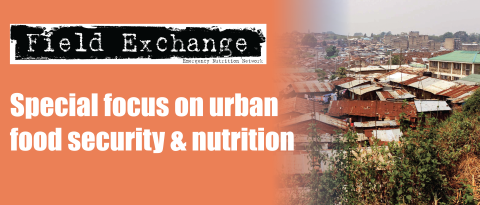Coverage Monitoring Network Profile

Since the start of operations in August 2012, the Coverage Monitoring Network (CMN) has supported a total of 50 coverage assessments, with nine implementing organisations (including non-governmental organisations (NGOs), Red Cross societies and governments) in 21 different countries. The table below gives the coverage rate and main barriers to accessing CMAM services identified in the assessments:
Country |
Region |
Coverage rate |
Main barrier identified |
Senegal |
Matam |
17% |
Community awareness |
Sudan |
Mornei, Darfur |
59% |
Insufficient screening and case finding |
Ethiopia |
Dolo Ado  |
79% |
Insufficient screening and case finding |
Haiti |
Port-au-Prince |
45% |
Stigma |
Ivory Coast |
Danane |
25% |
RUTF stockouts |
Rwanda |
Gisagara |
30% |
Distance |
South Sudan |
Kapoeta |
40% |
Distance |
Yemen |
Sana’a |
34% |
Lack of follow-up of defaulters |
Burkina Faso |
Diapaga |
N/A |
Lack of awareness about the programme |
Burkina Faso |
Yako |
31% |
Lack of awareness about malnutrition |
Niger |
Keita |
28% |
RUTF stockouts |
Niger |
Mayahi |
31% |
Interface with the programme |
Chad |
Batha |
20% |
Lack of awareness about the malnutrition |
DRC |
Bafwasende |
40% |
Insufficient screening and case finding |
DRC |
Opala |
N/A |
N/A |
Cameroon |
Maroua |
35% |
Lack of awareness about malnutrition |
Pakistan |
TMKÂ |
63% |
Lack of awareness about the programme |
Philippines |
Cotabato |
63% |
Lack of awareness about the programme |
Nigeria |
Katsina |
53% |
Interface with programme |
Senegal |
Matam |
15% |
Community awareness |
Mali |
Kita |
25% |
High defaulting linked to poor quality care |
Somaliland |
Sanaag |
N/A |
Conflict in the area and stigmatisation |
Chad |
Kanem |
37% |
Distance |
Chad |
Bahr-el-Gazel |
27% |
Distance & population movement |
Kenya |
Laikipia |
42% |
Lack of awareness about the programme |
Ivory Coast |
Toulepleu |
42% |
Lack of awareness about malnutrition |
Ivory Coast |
Zouan Hounien |
21% |
Lack of awareness about malnutrition |
Chad |
Iriba |
36% |
Lack of awareness about the programme |
Chad |
Amdam |
N/A |
N/A |
Afghanistan |
Kabul |
36% |
Lack of awareness about the programme |
Chad |
Kanem |
37% |
Lack of awareness about the programme |
Kenya |
Garbatulla |
50% |
Insufficient screening and case finding |
Angola |
Huambo |
N/A |
Lack of Awareness about malnutrition |
Burkina Faso |
Mani |
26% |
Lack of Awareness about malnutrition |
Burkina Faso |
Bogandé |
30% |
Distance |
Niger |
Gaya |
30% |
RUTF stockouts |
Niger |
Zinder |
51% |
Distance |
Niger |
Tera |
60% |
RUTF stockouts |
Kenya |
Dagoretti |
61% |
Stigma |
Kenya |
Embakasi |
31% |
Stigma |
Kenya |
Kasarani |
52% |
Long waiting for treatment |
Kenya |
Njiru |
26% |
Migration |
Somalia |
Garowe |
85% |
Alternative Health practitioners |
Somalia |
Bosaso |
86% |
Alternative Health practitioners |
Sudan |
South Darfur |
51% |
Wrong admission criteria |
Sierra Leone |
Freetown |
52% |
Lack of awareness about the programme |
Mauritania |
Guidimaka |
35% |
Lack of Awareness about malnutrition |
DRC |
Kandakanda |
31% |
Lack of awareness about the programme |
Pakistan |
Badin |
63% |
Lack of Awareness about malnutrition |
As part of the first phase of the project, the CMN conducted five regional trainings in Pakistan, Kenya, Burkina Faso, Democratic Republic of the Congo (DRC) and Nepal. In these locations, trained professionals are now conducting coverage assessment independently and/or with remote support from the CMN and other peers in-country.
The implementation of project activities in a wide range of contexts has highlighted the need for a deeper understanding of the broader issues and factors influencing nutrition programmes. These include (but are not limited to): access to urban programmes, implementing assessments in large geographical areas, the challenges and opportunities in identifying key community figures, working with local media, the emerging need for evaluating the coverage of treatment programmes for moderate acute malnutrition, operating remotely in insecure or inaccessible areas, and the widely acknowledged (but not always understood) goals of capacity building. The experiences of the CMN team with these issues are increasingly being documented and can be found in the blog-section of the CMN website.
In its efforts to increase access to technical support, the CMN is currently finalising the French translation of the SQUEAC/SLEAC technical documents, originally published by the Food and Nutrition Technical Assistance (FANTA), Valid International, Brixton Health and their partners. The French translation is scheduled to be released in September 2013, and will be a valuable resource for the increasing number of francophone nutrition practitioners seeking to implement coverage assessments.
The CMN remains committed to helping nutrition stakeholders understand the context-specific factors influencing their performance and to take the experiences gathered so far to new locations. Over the next few months, the CMN will be launching new activities and publications designed to stimulate further debate about the challenges and opportunities faced by nutrition programmes around the world.
For further information, contact: Jose Luis Alvarez, CMN Project Coordinator, email: cmnproject@actionagainsthunger.org.uk
All reports and data are available in the CMN website www.coverage-monitoring.org.

Imported from FEX website


